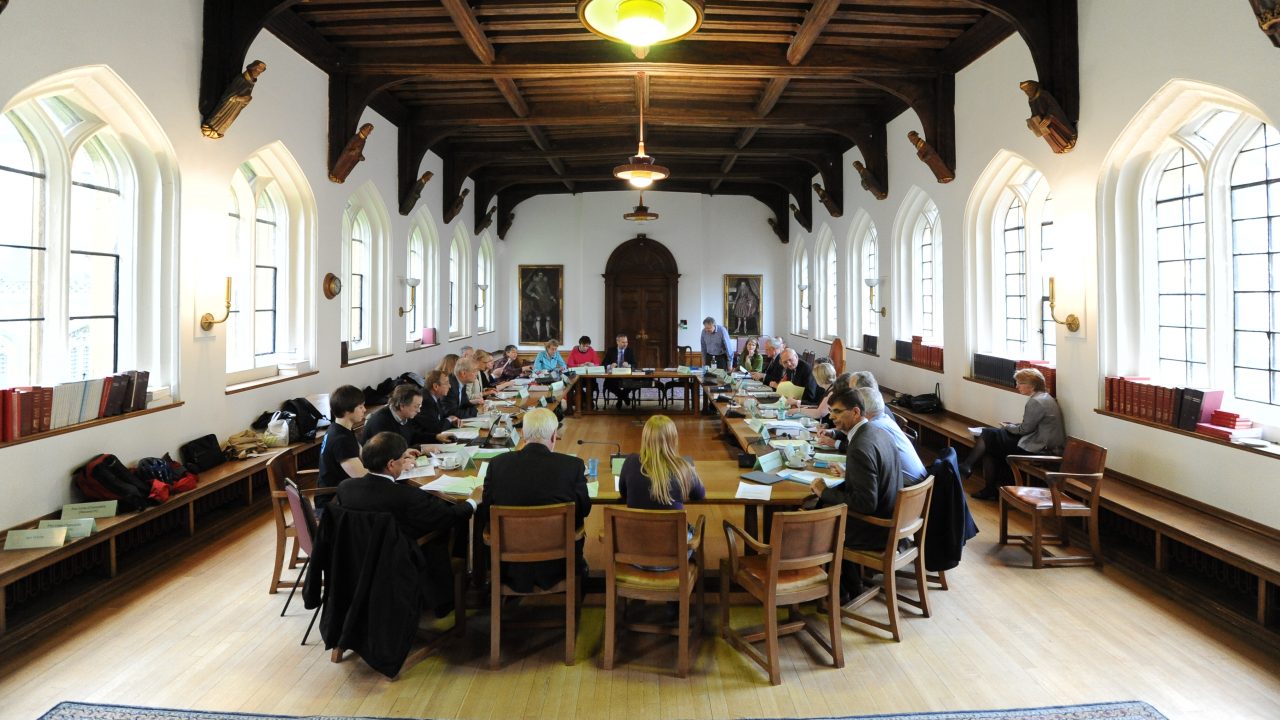What is Good Governance? Hearing Voices from Around the World
Jonathan Nicholls, Secretary at The Open University, discusses the different perspectives of good governance and questions whether it can be defined.


“I cannot find it; ’tis not in the bond”
– The Merchant of Venice
What defines good governance may be a matter of perspective.
One of the reasons given by Moody’s for Cambridge University’s financial rating of Aaa (stable) – the UK government is rated much lower at Aa2 by the same agency – is its governance arrangements. Cambridge has noted financial strengths which matter when it comes to issuing a bond.
But when Moody’s rated the University for its first bond issuance in 2012, it was also impressed, for rating purposes, by the University’s distributed leadership, the absence of single-agency executive control, the checks and balances in the model of governance between the Regent House (the large “parliament” of staff) and the executive governing body, the Council. Seen from a different perspective, successive leaders of the University have worried about the negative aspects of these strengths.
A small number of actors in a complex system of government have the ability to hamper or block the University’s rapid response to changing events and opportunities. So real is that concern that governance is an ever-present topic on the University’s strategic risk register. What mitigates that risk is the presence of trust and openness. This derives from the strong foundational myth of the University as a self-governing body of scholars with shared values rooted in academic freedom and freedom of expression. If that trust is undermined, the risk of failure for the University magnifies.
When the same University issued a second bond (in two tranches) in 2018, Moody’s also noted that: “Higher Education ratings in England benefit from the strong regulatory framework of the English Higher Education sector, as directed by the Office for Students.”
Here’s another perspective of what constitutes good governance. Cambridge’s governance arrangements will be in tension with the new regulator and the University is currently subject to an “ongoing condition of registration” (regarding its access and participation plan). Yet the presence of the OfS and its regulatory framework are a strength from the perspective of Moody’s.
Can we define good governance?
Paradoxes like these bedevil contemporary debates about higher education governance and what represents “good”.
In England, the OfS declares itself to be a principles-based regulator but is struggling to supervise 352 providers (and counting) of different sizes and types without increasingly detailed prescription. It also struggles to manage the enthusiasm of ministers and other politicians to interfere on the latest topic of concern (salaries or degree classifications, etc.).
In Wales and Scotland, funding councils in name are behaving more like regulators. Globally, we can observe governments taking greater interest in performance and setting standards for how universities are run.
Anxiety is rife that universities have lost their autonomy. Yet we also need to be careful not to imagine a prior golden age when universities were sovereign in their independence. Deep in its history, Cambridge came under the jurisdiction of the Pope and what was taught was prescribed and limited. Governments – providing order and direction to societies – have always exercised supervision over universities.
“The character of ‘good’ governance lies in something other than its form and content; to norms, values and cases. The answer to the question ‘what is good’ seems to lie in the active endorsement of relevant stakeholders to what is intended, acting in ways which are entirely consistent with those intentions, and the ability of the governing system to anticipate or respond to changing standards and expectations.
Because societal expectations can quickly change, and are located in time and place, those governing higher education today face the challenge of discerning the right choices in complex circumstances and steering the institution in ways that demonstrably and sustainably achieve its core aims.”
A new book on governance
That quotation is from Tony Strike, University Secretary of the University Sheffield. It is taken from his introduction to a forthcoming book, edited by him, John Rushforth, and the author of this blog.
The book, Governing Higher Education Today, is published by Routledge and contains a series of essays offering different voices and perspectives from around the world. The English “experiment” that we are experiencing in that country is central to the book’s concerns. It takes in the views of different agents in governance, from Chairs to Secretaries. It looks at the new corporate code. And importantly, it provides views from Australia, the US, Europe, and Africa.
How we run universities and how we do it well is a vital issue. Our work on this book has shown us that there is no universality about good governance in forms and models. But perhaps there is in values, principles and engagement. The book cannot solve the paradoxes, but the essayists can at least help provide a context for understanding them better.
